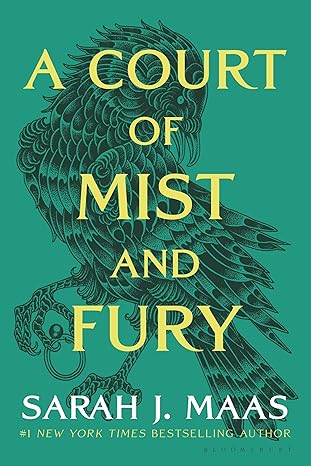The Transformative Power of Writing: Insights from Sarah T. Schwab

In this enlightening discussion, filmmaker and writer Sarah T. Schwab reveals how the act of writing not only shapes her creative process but also enhances her empathy and understanding of the human experience. Through her reflections, we explore the balance between dedication and self-care in the demanding world of filmmaking.
Table of Contents
- The Essence of Writing
- Perceptions from Others
- The Calling of Storytelling
- Writing Environment
- A Unique Writing Experience
- Exploring Historical Connections
- FAQ: The Balance of Work and Life
The Essence of Writing
Writing is a transformative journey that allows individuals to transcend their own experiences. It opens a doorway to different universes, enabling writers to step into the shoes of varied characters. This process not only fosters creativity but also enhances understanding and compassion.

Through writing, one can explore the depths of human emotions and motivations. It encourages writers to ask critical questions about their characters, such as, “What drives this character’s actions?” or “What past experiences shape their current behavior?” This level of inquiry leads to richer narratives and a deeper connection to the human experience.
Moreover, the act of writing is a way to peel back layers, much like an onion. It reveals the core of each character, showcasing their vulnerabilities and strengths. This exploration not only enriches the narrative but also cultivates empathy in the writer.
Empathy Through Characters
Creating characters is not merely about crafting personalities; it’s about diving into their psyches. Writers often find themselves empathizing with even the most flawed characters. This empathetic approach transforms the writing process into a profound form of understanding.

Characters are rarely one-dimensional. They embody complexities that reflect real-life struggles. By acknowledging their flaws, writers can create authentic narratives that resonate with readers, making them feel seen and understood.

Writers must embrace the idea that everyone has a backstory. Each character’s journey is a reflection of their past, shaped by experiences and decisions. This realization fosters a deeper connection between the writer, the characters, and the audience.
The Frequency of Writing
The frequency of writing can vary significantly based on individual circumstances. For some, it may be a daily ritual, while for others, it can be sporadic. The key is to find a rhythm that works for you.

During busy production periods, writing may take a backseat. However, setting specific goals can help maintain focus. For instance, completing four screenplays by a set deadline can provide structure and motivation amidst a hectic schedule.

Consistency is crucial. Even if the writing is not perfect, regular practice helps refine skills and keeps the creative juices flowing. Finding moments in the day to jot down ideas or develop scenes can make a significant difference over time.
Staying on Track
To stay on track with writing goals, it’s essential to establish a disciplined approach. High expectations can drive productivity, but they must be balanced with flexibility. Setting deadlines fosters accountability, pushing writers to make progress and stay committed.

A structured routine can help mitigate procrastination. It’s easy to fall into the trap of delaying work, but maintaining a schedule creates a sense of purpose. Writers should strive to find a balance between staying focused and allowing themselves grace when things don’t go as planned.

Additionally, incorporating breaks into the schedule can rejuvenate creativity. Taking time away from writing allows for reflection and renewed inspiration. Engaging in different activities can spark new ideas and perspectives.
The Importance of Breaks
Breaks are essential for maintaining creativity and preventing burnout. Stepping away from the writing process can lead to unexpected insights. Engaging in leisure activities or exploring new environments can trigger fresh ideas.

Writers often find that some of their best ideas emerge during moments of relaxation. Whether it’s spending time in nature, visiting a farmer’s market, or simply enjoying a casual outing, these experiences can provide the mental space needed for creativity to flourish.

While the temptation to remain immersed in work is strong, it’s vital to prioritize self-care. Taking intentional breaks not only refreshes the mind but also enhances overall productivity in the long run.
Managing Expectations
Managing expectations is crucial for writers navigating their creative journeys. It’s important to recognize that not every piece will be a masterpiece. Accepting this reality allows for more freedom in the writing process.

Writers should set realistic goals while allowing room for growth. Progress may come in fits and starts, and that’s perfectly okay. Embracing the journey, with its ups and downs, fosters resilience and determination.

Ultimately, the act of writing is a personal exploration. Each writer’s path is unique, filled with challenges and triumphs. By managing expectations and nurturing creativity, writers can cultivate a fulfilling and sustainable writing practice.
Perceptions from Others
How others perceive a writer can significantly impact their creative journey. Friends and family often worry about the long hours and relentless dedication that writing demands. They may suggest taking breaks or stepping away from the keyboard to recharge.

However, these perceptions can vary widely. Some see the hard work and commitment as admirable, while others may feel threatened by it. The challenge lies in balancing personal ambition with the expectations of those around you.

Writers often find themselves navigating different responses. Close friends may urge self-care, while acquaintances might view them as a resource for opportunities. Understanding these dynamics can help writers maintain their focus and drive.
The Calling of Storytelling
Storytelling is more than just a hobby; for many, it is a calling. Writers are often drawn to this craft from a young age, feeling an innate desire to share narratives that resonate with others.

This passion fuels their creativity and shapes their identity. The act of writing becomes a way to explore complex themes and emotions, turning personal experiences into universal tales.

Writers may experiment with various mediums, from theater to film, before finding their true voice. This exploration is crucial as it allows them to hone their skills and discover what resonates most deeply with them.
Writing Environment
The environment in which a writer works can greatly influence their creativity. A dedicated space, away from distractions, fosters focus and inspiration. For many, a serene setting surrounded by nature, like a secluded office, proves ideal.

Elements such as natural light, comfortable furniture, and minimal clutter can enhance the writing process. Writers often design their spaces to reflect their personality and encourage creativity.

Seasonal changes can also affect where writers choose to work. Some prefer the coziness of an indoor space during winter, while others thrive outdoors in the warmer months.
A Unique Writing Experience
Every writer has unique experiences that shape their craft. For some, retreats in historical homes or serene locations provide the perfect backdrop for creativity. These experiences allow for deep reflection and uninterrupted writing time.

Being in a space with historical significance can inspire new ideas and perspectives. Writers often find themselves connecting with the past, drawing inspiration from the lives of those who came before them.

Such unique experiences not only enhance creativity but also foster a sense of community among writers. Engaging with others in similar pursuits can lead to valuable exchanges of ideas and support.
Exploring Historical Connections
History often serves as a rich source of inspiration for writers. Exploring historical events, figures, and settings can deepen the narrative and provide context to contemporary issues. Writers who delve into history can create stories that resonate with audiences on a profound level.

Researching different periods can also lead to unexpected insights. Writers may uncover stories that have been overlooked, bringing them to light through their writing.

Connecting past experiences with modern themes can create a compelling narrative. Writers can draw parallels between historical events and current societal challenges, making their work relevant and impactful.
FAQ: The Balance of Work and Life
Finding balance between work and life is a common challenge for writers. Many struggle with the demands of their craft while trying to maintain personal relationships and self-care. Here are some frequently asked questions regarding this balance:
- How do you manage your time effectively? Establishing a structured routine can help. Setting specific writing hours and adhering to them fosters discipline.
- What role do breaks play in your writing process? Breaks are essential for rejuvenation. They provide mental clarity and often lead to fresh ideas.
- How do you handle external pressures from friends and family? Communicating your passion for writing can help others understand your dedication. It’s important to prioritize your goals while remaining open to their concerns.
- What advice do you have for aspiring writers? Stay committed to your craft and embrace the journey. Writing is a personal exploration, and every experience contributes to your growth.



















